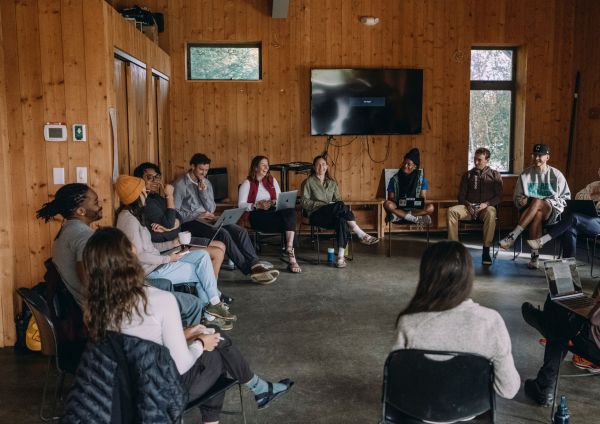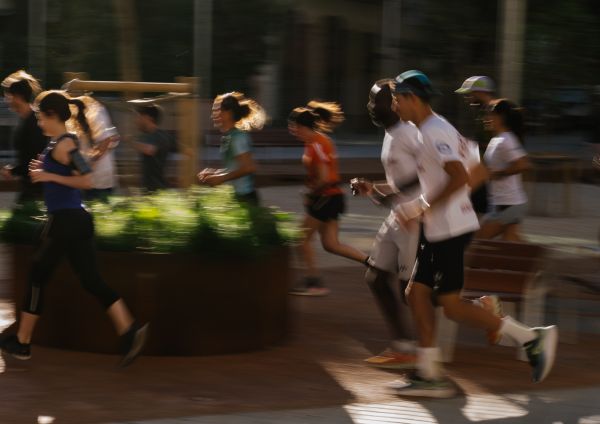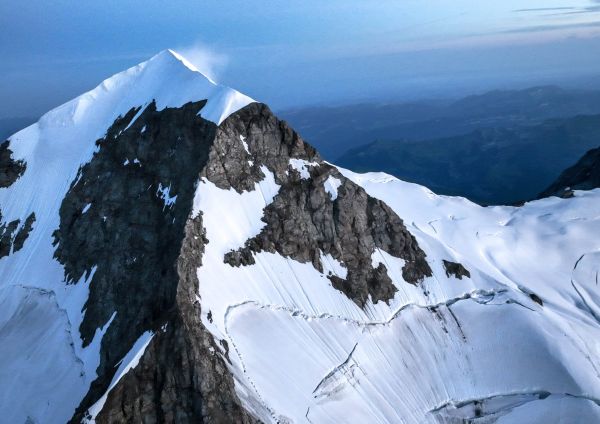The Voice is Female · Mountain guide in Colombia


Interviewing Maria Yepez. Empowering women in Colombia.
How did your passion for nature started?
My grandfather was a farmer who, at some point in his life, decided to study accounting and move to the city to give his family better opportunities, but he always carried the countryside in his heart. He bought a house with a giant yard that he planted with every tree, bush, flower, and aromatic herb that could germinate and grow in the warm lands of the oil city of Cabimas. That giant yard was a place of adventures for me and my siblings, and where we spent the happiest moments of our childhood. Our treats were mangoes, papayas, oranges, cherries, guavas, custard apples that we saw sprout every day like magic and with which my grandmother Teresa made us juice every day. The soundtrack of our childhood was the birds that nested in the trees planted by Grandfather José María. He show us how to respect all living beings and love the nature; every insect, earthworm, lizard, butterfly, bee, frog, every creature had a place and a function to fulfill to make it possible for the vegetables and fruits we planted to sprout like an act of magic and love of the Earth. In short, my love for nature was a seed planted by my grandparents when I was still a little girl.
When did you decide to dedicate your professional life to it?
Honestly, I never thought that I would work on a mountain as a guide and interpreter. I graduated from the School of Business Administration and my working life was spent within the walls of an office. My arrival in the Sierra Nevada de Santa Marta (Colombia), was merely circumstantial, an unexpected twist of my life.
What difficulties did you face when you made the decision to become a mountain guide?
The biggest challenges in my work environment have been sexism, xenophobia, homophobia and exploitation. As English and Spanish interpreters on the mountain, we are paid well below the value of our work, even though 90% of visitors are English speakers. As an immigrant woman, being away from home, family and friends, has been an added ingredient of difficulty; but little by little and thanks to the mechanisms of time and habit, they have become much more bearable.
What barriers did you have to overcome to be where you are now?
Although I have always practiced sports, working as a mountain guide requires a lot of training and being in optimal physical condition, to take walks every week that last between four and seven hours, often under sun, rain, high temperatures and humidity that sometimes reaches 90%. In my case, I have always been a very introverted person. Social interactions, and especially public speaking, were something like a nightmare for me and from one day to the next, without any warning, I found myself interpreting for audiences of 80 or 100 people. This has undoubtedly been one of the most difficult barriers I have had to overcome in my life.
How is the situation in Colombia for women who want to be a mountain guide? Are there opportunities?
There are opportunities only if you were born and raised in the region. However, for local women, there is a lot of competition and sexism to contend with. In the case of interpreters, the only reason they hire us, as foreigners or Colombians from other regions, is because of our knowledge of the English language.
What advice would you give to a girl who wants to dedicate herself to it in Colombia?
A lot of mental and physical strength, emotional intelligence and a very solid self-esteem.
You work in a sector closely to nature. Today, do you think that in Colombia there is enough awareness of what climate change is doing to our environment?
Although there are conversations around “responsible tourism”, “sustainable tourism” and terms such as “ecotourism” are coined, the reality is very different. Very little, or nothing, is said about it, only on billboards or advertising campaigns; but reality is far from what it should be.
Colombia is becoming more and more touristy, do you think there is an impact of this tourism on the environment in which you work?
The environmental impact of tourism activities in the sector where I work is evident to any visitor: the sale of alcohol in indigenous reserves, contamination by waste (mainly plastic), and the felling of trees for the construction (a practice that is on the rise among the indigenous population now that they manage money thanks to tourism), are the activities that have the greatest negative repercussions on nature and the environment.





